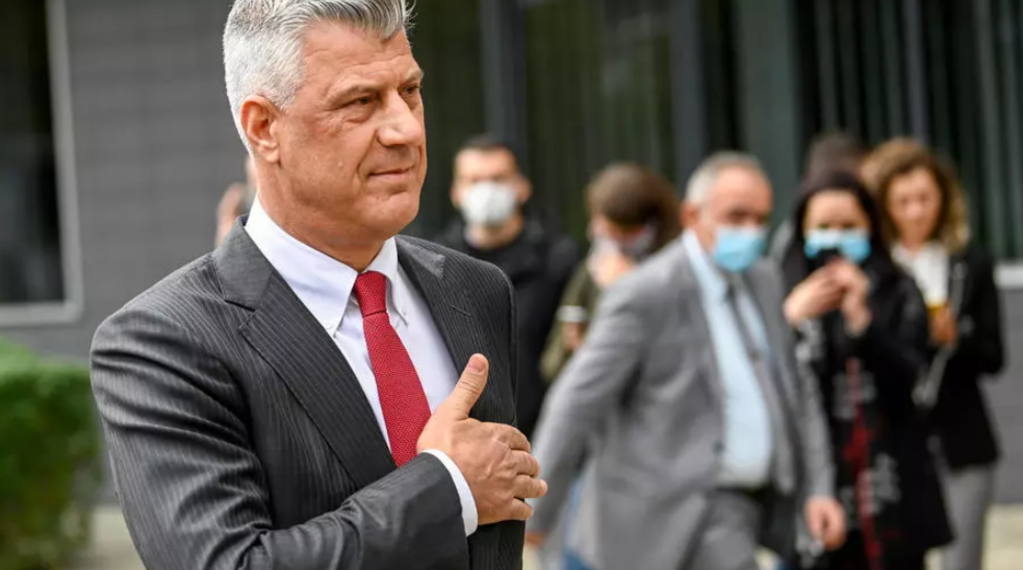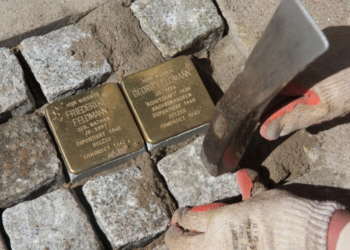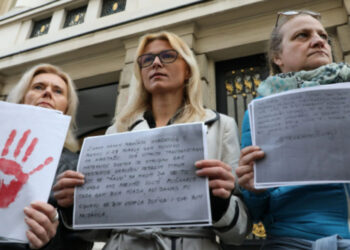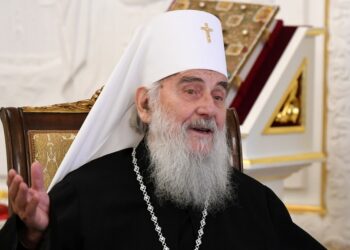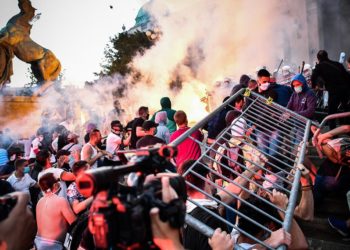Kosovo’s former president Hashim Thaci pleaded not guilty to war crimes charges in the 1990s war against Serbia as he appeared for the first time at a special international court in The Hague on Monday.
The one-time guerilla liberation hero resigned as president on Thursday and flew to the Netherlands where he was placed in the detention center of the Kosovo Specialist Chambers tribunal.
Thaci, 52, is charged with war crimes and crimes against humanity including murder and torture during an alleged campaign by the ethnic Albanian Kosovo Liberation Army (KLA) against civilians it deemed to be its enemies.
“The indictment is completely without basis, and I plead not guilty to all the charges in the indictment,” Thaci told the court, rising to his feet after the judge asked him if he wished to plead guilty or not guilty.
“I understood them, I heard them today, I read them, and I do not agree with any of them.”
His lawyer David Hooper complained about Thaci’s treatment, saying it was “disgraceful” that he was held in handcuffs outside the court, and saying he intended to seek his conditional release.
Going by the nom de guerre “Snake”, Thaci was the political chief of the rebel KLA, which battled Serb forces for the independence of the southern province in a bitter conflict that claimed more than 13,000 lives.
After downing his guns following the war Thaci joined politics, leading then US vice president Joe Biden to once hail him as the “George Washington of Kosovo”
‘Rewriting history’
Thaci has repeatedly proclaimed his innocence and claims the international system of justice is “rewriting history” over the conflict. On Thursday he said he was stepping down as president to “protect the integrity” of the office.
The bitter conflict killed ethnic Albanian Kosovars for the most part, and only ended when a NATO air campaign forced Serb forces to withdraw.
Top Serbian military and police officials were later convicted of war crimes in other international courts.
But rebel leaders of the KLA have also been accused of revenge attacks on Serbs, Roma and ethnic Albanian rivals during and after the war.
The indictment accuses Thaci and three others of war crimes and crimes against humanity, including murder, torture, illegal detention, enforced disappearances and persecution, committed between 1998 and 1999.
They allegedly carried out “a widespread or systematic attack against the civilian population”, including those believed to be collaborating with Serb forces, or not cooperating with the KLA.
Former KLA spokesman Jakup Krasniqi, one of Thaci’s co-defendants, pleaded not guilty to the charges when he made his first appearance at the court on Monday.
“It is not right that I am here, an injustice has been done against me,” said Krasniqi, 69, a former Kosovar politician who was arrested by armed EU police late Wednesday in Pristina.
The other co-defendants are Thaci’s closest political ally Kadri Veseli and key KLA figure Rexhep Selimi.
‘Fighting for Kosovo’
Many former KLA chiefs have gone on to dominate politics in Kosovo, with many still seeing him as a liberation hero, although critics see him and others as the face of a corrupt, entrenched political elite.
The charges are nevertheless a seismic moment for a young country still struggling with tense relations with Serbia, and lacking international recognition from countries like Russia since Pristina unilaterally declared independence in 2008.
Thaci’s first appearance in court was the top headline in Kosovo newspapers while television channels were carrying it live.
Opinion on the streets was mixed.
“It’s not right. The Serbs were the side that were committing crimes, killing us while they (the court) arrested those who were fighting for Kosovo,” Doruntina Begu, 41, a nurse in Pristina.
“Let’s leave this to the court. If Thaci is innocent, they will let him go in the end,” 72-year-old pensioner Musli Hasani said.
The Kosovo Specialist Chambers was set up with EU backing five years ago, following a 2011 Council of Europe report which named Thaci and others as allegedly being involved in crimes.


